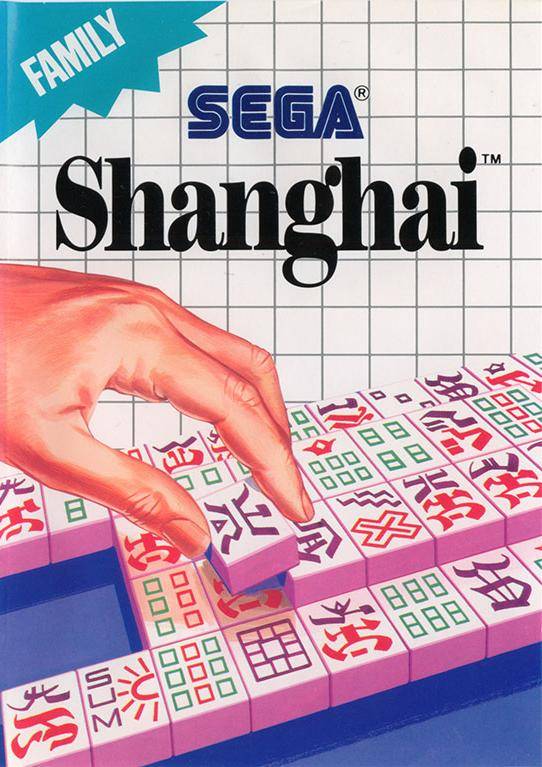
PLAYERS: 1-2 simultaneous
PUBLISHER: Sega
DEVELOPER: Activision (port by Sega)
GENRE: Table
RELEASE DATE: 10/1988 – (US), 1988 – (EU)
Shanghai‘s cover – a hesitant hand hovering over countless mahjong tiles – might make the game look abstract or difficult. But if you’ve ever played solitaire on a PC, you’ll know what to do here. 144 tiles are shuffled and arranged into a Dragon Formation. The Formation has a pyramid-like structure: one tile at the top, with additional layers of tiles being placed underneath. The goal is to clear the Dragon by removing all the tiles. Move matching pairs of tiles, one at a time, until all the tiles are cleared. The one caveat is the tiles must be “free”: nothing atop the tile and nothing to either side of the tile. Tiles match if they bear the same symbol. Any two flowers will match, as will the season tiles (Spring, Summer, etc). Once all the tiles have been removed, Shanghai victory is yours.
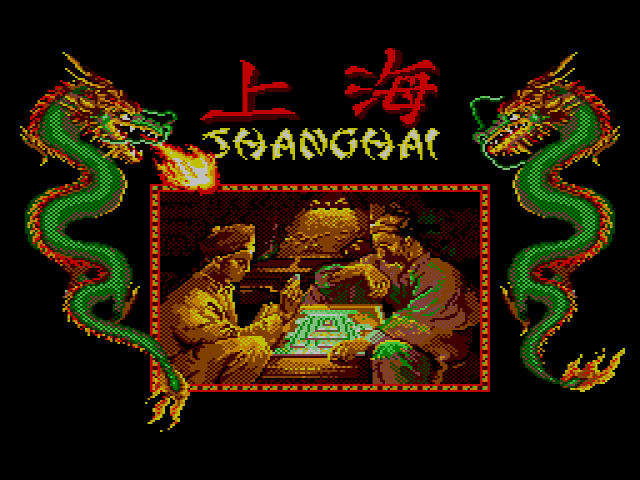
Two options, ‘Help’ and ‘Game’ guide you through the world of Shanghai. The Help menu has Identify a Tile, which gives insight into the tile you select; Back Up a Move, good for when you screw up; Show All Moves, self-explanatory and great for cheaters; Peek stops your game completely, then shows you the remaining moves on the board; and finally, Change Music. If you’re expecting some entrancing Tetris-like puzzle jams, think again. Shanghai‘s music isn’t the worst the Master System has to over, but the repetitive tunes aren’t nearly as catchy as the developers apparently thought.
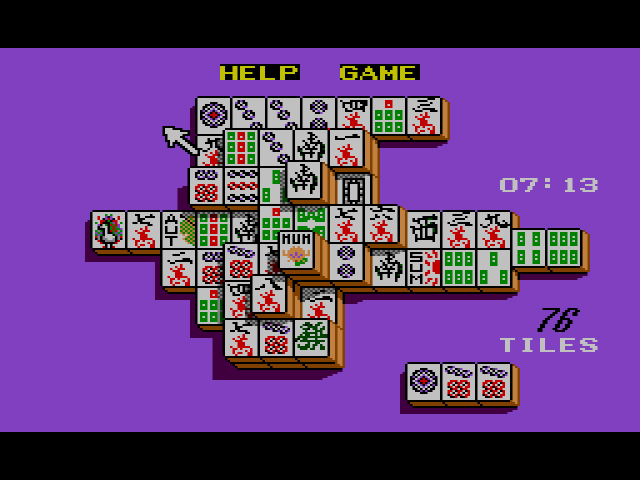
‘Game’ offers different modes, like Solitaire, Tournament, and Challenge. Solitaire is a straightforward game of Shanghai, no more, no less. All Tournament mode does is impose a Time Limit – five minutes, ten minutes, twenty minutes, or No Limit – and disables some of the help options otherwise available in Solitaire mode. Challenge Mode allows you to play against a friend or impose a time limit on every move you make. If you play with a friend, the goal is to match more pairs than them. If you play with a time limit, you choose from 5-60 seconds per move. Be forewarned: the cursor moves slowly, regardless of how much you jam the D-pad in a certain direction. Thus, the likelihood of being able to choose a move in 5-10 seconds is slim to nil.
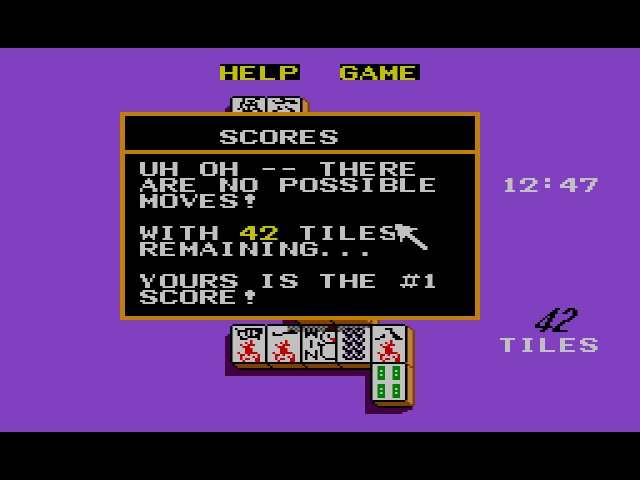
Why is Shanghai one of the best games on the Master System? Because I’m a sucker for solitaire, mahjong tiles are awesome (particularly when you’re not forced to play mahjong with them), and you could literally play the game forever. The Dragon Formation is completely new every time you start a new game, so no two games are alike. And the better you get at clearing the Dragon, the more limits you can impose on yourself. As with solitaire on PC, Shanghai is very much luck based. Even though it feels like there should be a solution to every game, that isn’t necessarily the case. Consistently losing is something one should expect if you’re used to solitaire, though I suppose some folks might call the game unfair or cheap because of this. If you can handle continuous blows to your ego, Shanghai is an exotic, addicting solitaire alternative.
A-
FUN FACT: Understandably, Shanghai games weren’t as popular in America as they were in Japan. While America would get Shanghai II: Dragon’s Eye for the Genesis in 1994, almost all Sega systems in Japan received a Shanghai game, save for Sega CD and 32X. Some of these include Shanghai II for Game Gear, Shanghai: Triple Threat for Saturn (one of three Shanghai games released for the system), and Shanghai Dynasty for the Dreamcast.

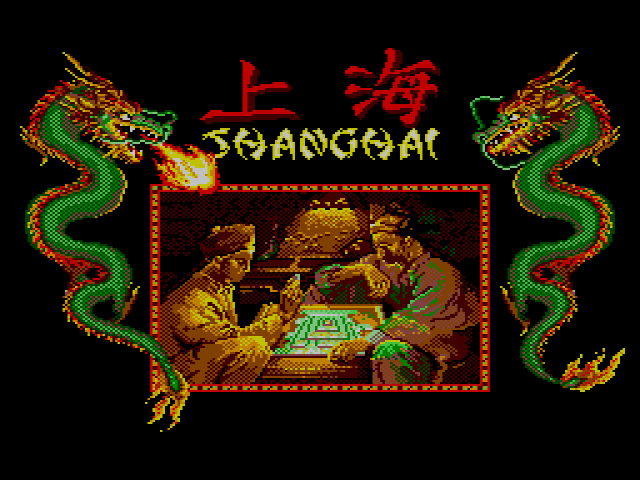
One reply on “Shanghai (Master System, 1988)”
I used to have this game. It’s been ported to all kinds of platforms back in the day. It was an OK diversion. Honestly for years I thought this was how you played Majong. I may have been an adult already when I realized this wasn’t real Majong.